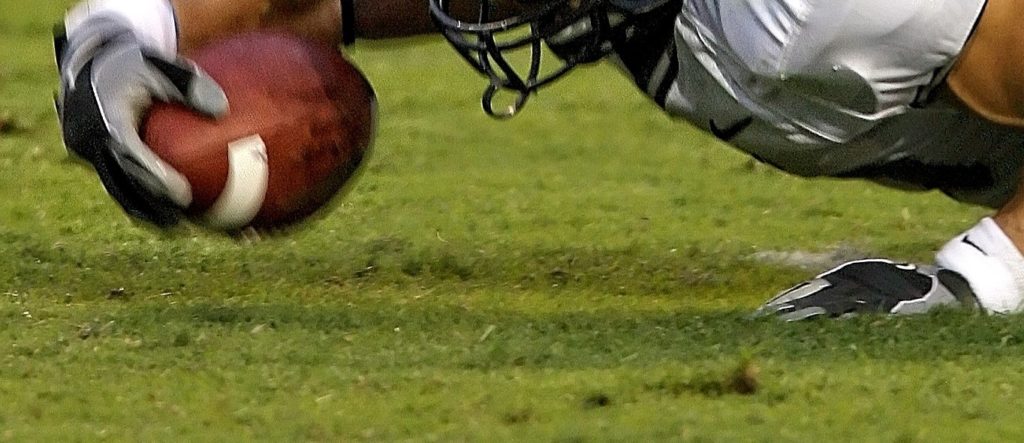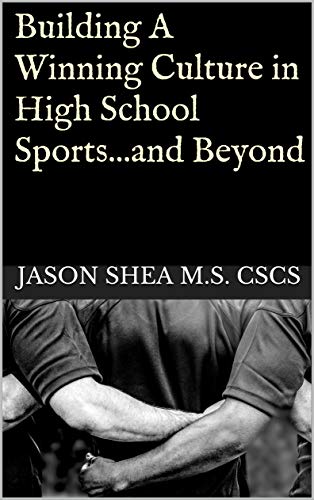When one thinks of Texas High School football there are a few programs that come to mind: Allen, Katy, Euless Trinity, and of course Southlake Carroll. Having risen to prominence as a national powerhouse in the early 2000’s Southlake Carrol has been a staple on both the National and Texas state rankings.
8 Texas State Titles, 3 National Championships, 3 Undefeated seasons in a row (2004, 2005, and 2006.) Between 2002 and ‘06, Carroll was 79-1 with four state titles. Their most recent state title in 2011.
Overview of Southlake Carroll Football since 2004:
2004: 16-0 National Rank 5
2005: 16-0 National Rank 1
2006: 16-0 National Rank 1
2007: 11-2
2008: 8-3
2009: 11-3
2010: 11-4
2011: 16-0 National Rank 14
2012: 13-2 National Rank 48
2013: 12-2 National Rank 45
2014: 13-1 National Rank 21
2015: 9-3
2016: 10-2
2017: 10-4
2018: 13-1 National Rank 65
Total: 185-27. That is a winning percentage of 87% over 15 seasons while playing some of the best teams in the country on a weekly basis.
The list of notable NFLers and college stars hailing from Southlake Carroll includes Scott Chandler, Chase Daniel, Kris Brown, Justin Drescher, Garrett Hartley, Kenny Hill, Greg McElroy, and Tre Newton.
With a culture rich in football history, Southlake, Texas is also one of Dallas-Fort Worth’s wealthiest and most-beautiful suburbs. In March of 2016, Southlake was ranked as the 5th highest earning city on a list called ‘The $100K Club: America’s Highest-Earning Cities’. As of 2019, the estimated population was roughly 31,000 with the average home listing price at $883,109.
With its great outdoor recreation, lake activities, world class golf courses, Legoland, hidden gem wineries, great school systems, and nationally ranked High school football, it is easy to see why Southlake has become one of the nation’s most desirable communities to live.
Coach
In Texas right now, there is really nothing to hold people in the smaller towns. When people move out of these towns oftentimes, they are moving to the outskirts. Compound this with the stressors a high school athlete faces: pressure to succeed as a student, pressure to succeed as an athlete, scholarships, SAT’s, social media, notoriety, the camps these kids attend etc. A lot of these kids want to go and play for very successful programs. These programs are often found in areas of Texas where people have a lot of money.

The cost of living in many of these areas of Texas has grown significantly. The average home price in Southlake Carrol is $883,109.00. According to Coach Hal Wasson, “you can’t move here without deep pockets. We all want to put our kids where they can get the best education. The parents do a little more shopping for where to live. The Dallas Metroplex area is loaded with many great schools with highly successful football teams. When people land in the Metroplex area, they want to put their kids in a place where they can achieve and be a part of a winning environment.”
Excellence
This is the word coach Wasson used to describe the culture of the Southlake Carrol football program. “The culture is what brought me here personally. We are fighting harder for our culture every day. We have unique kids. Kids that have tremendous work ethics. You are either in season or getting ready for season. It is pretty much a year round deal. We do very common things, like blocking, tackling, and running routes with uncommon energy and uncommon discipline. It is easily said but hard to do every day.”
“Uncommon means paying very close attention to every detail.” Every aspect of lifting, sprinting, schoolwork, being a role model student, teammate, citizen, and family member, all fall under the umbrella of this “uncommon” approach to attention and detail. “We choose to focus on the things we can control. This is especially important in a world where people get caught up in the perception of things they have no control over” shares Wasson.
Wasson continues “I have been to a lot of schools. We chose Southlake Carrol because of the culture and commitment to excellence. We chose this place because of the outstanding student and school community here.
Southlake Carrol is a community that takes great pride in the little things as well; from the meticulous landscaping to the to the wineries, golf, lake activities, and incredible community events. It is an honor to be a part of this community.
“There are a lot of little ponds and fountains. We tell our players you can be the fountain that produces energy or the drain that sucks the life out of it. I want to be in a place where the culture is excellent. We expect the best of you, we expect to win” shares Wasson.
“If you looked at our athletes, we have phenomenal kids, unbelievable discipline, work ethic and drive. We have incredible support from the administration. We win. There is a reason we win. Hard work and focus will always beat talent when talent doesn’t work as hard.
This is how it works for us. We invest time every day in the mental part of the game. We are always teaching leadership and confidence. Those are both learned behaviors. Some athletes may be more prone to be a leader or more confident, but this is also something we can teach and cultivate over time. We invest by meeting daily through our mental development program. We splinter off and teach athletes accountability, responsibility, how to treat your parents, how to treat each other, how to be coachable, etc. We don’t assume anything. We carefully dissect these elements because these are things that we can control.”
“We invest a lot of time in mental toughness part of the game. What does that look like and how do we capture that? How much time do you invest in blocking, tackling, and running? Now how much time do you invest in the mental part of the game? If the mental part of the game is so significant and you are only spending 10 minutes per practice that does not cut it. We invest 30 minutes every day of the season on the mental part of the game. What is the mental edge we are going to have to win when it comes down to the wire? We won 6-7 games in last minute.
We went 13-1 on a team that was predicted to go 500. The kids came back, and it was little prophecy to them. Because we mentally prepared for this. Nick Saban and Urban Meyer were two of the first coaches to grab hold of the mental thing.”
Youth to High School and Beyond
According to the coach “In youth sport, if a kid is not succeeding it is certainly not the kids’ fault. We don’t coach parents. We coach YOU the kids, and we are always going to focus on you. It gets tougher every year as our expectations of you grow.
We always start our off-season, summer strength and conditioning program, and competitive season with the end in mind. We tell them simply; our goal is to win the next game and our vision is to win the last game. We are not talking about state and district championships. We keep the focus on the process; the things that are within our control. “
We are a program built on trust

“It is the number one ingredient in our program. It is numero uno for us. The glue, the cement, the concrete, that holds us together is trust. If that mortar or foundation is ever cracked than we are in trouble.
We cultivate trust in our players. We use the term investment. When I hear coaches say “I have to” versus “I get to” this shows the difference between spending time versus investing time. It is not about the number of minutes; it is about the quality of minutes.
We have a lockdown meeting with our players. This is a trust session. We ask them what we need to improve on and what we need to do better. We ask them about them as people rather than athletes.
When I was coming up as a kid, my dad was not that concerned about my self-esteem. His was a mentality of “this is what I expect of you”. It wasn’t about trust and friendship. It was about meeting expectations and working hard to get things done.
To talk about trust, it is simple, pretty vanilla. What you do speaks so loudly I cannot hear a word you are saying. When it comes to trust, if a kid tells me I can trust him, but continually makes poor decisions in the weight room, classroom, and outside, I have to second guess if we can trust him on the field” expresses Wasson.
Goal setting
“I am studying a model. We talk to our team all the time about teams, about being special. The formula is the 3% group in all athletes. We encourage our guys to write their goals daily. To go and say I want to be a 300 lb bench presser, we want them to be more honest about that. The 3% group know exactly where they are and know how to get where they want to be. They address and fix the things that are wrong. We call these guys the “special people” or “winners”. The 3%ers want to be special. They can smile at adversity. They want to get better and smile when facing challenges as they view it as an opportunity to get better.60% are survivors, if good it is good and bad is bad. 37% make up the rest” shares Coach Wasson.
Focusing on Culture
According to Wasson “Tradition never graduates. Culture is number one to us. With culture we are a routine team. I think so much of what we do and expect is habit. There is a reason teams win, and teams lose. Some teams look at talent and accept winning and losing. At Carrol we just can’t give into mediocrity. That is a great motivator for me personally. We know anybody can be average. We fight hard daily to keep our culture. We seek daily ways to improve and better our culture.
We keep it simple in Carrol: we say do your job. You have one simple job, just do it to the best of your ability. We must know our group of kids, and the skills they have. You have to do manipulations based on your personnel. Culture is number one; we don’t just rest on it, we attack it. We want to protect that culture. We want to protect the tradition of excellence. Tradition is an annual event. Last year’s team has nothing to do with this year’s team.”
Preparation will always create opportunities
“That is what we tell our players” Wasson continues. “The lack of preparation lead to a lack of opportunities. When our players finish the season, we are going to have a week long exit meeting telling them where we see them and where we want to see them. At the beginning of the off-season We do a 200 phase. We do not leave the 200 phase until all of the athletes have hit three 200’s in a designated time. Those aren’t pleasant, they are gut wrenching. We don’t leave that phase of off-season training until the entire team hits their number.
Once we complete the 200 phase, then we move on to the speed and agility phase, then the Dragon Maker phase. A phase could last 2 weeks or 3 months, depending on the commitment level of the team. One year we stayed in a phase for an extra 2 more weeks as every athlete could not hit their numbers.
After the Dragon Maker we move on to a skill phase, then Spring Ball, then summer strength and conditioning, then on to football camp. When talking about habit and culture, this provides kids with a crystal clear picture of what we want it to look like. Brick by brick, layer by layer, we are working on things that will keep our culture and tradition continually improving.
As we tell our players I know one thing about the game of football, the TEAM that prepares and performs the best will win 100% of the time. Not the individual, the team. This year’s team for us went 13-1. Our safety went to Purdue, and QB went to Sand Diego State. Next year’s team has 3 kids committed to D1 schools. We could have 1 to 3-4 D1s kids any year. The team that knocked us out of the playoffs had 12-15 D1 players. We don’t have the luxury of that many D1 players, therefore we must rely on work ethic, commitment, preparation, and execution, and trust in one another and trust in the coaching staff.”
Cultivating the person then the athlete
Athletes don’t care how much you know until they know how much you care. Wasson shares “First, we tell our position coaches, commit to the relationship of your player. There has to be a relationship to have trust. It is 2 fold; When you start, they are all mixed in this big bowl. What is our most valuable asset besides our kids? It is time. Our coaches do an unbelievable job of cultivating the relationship with the players. We don’t assume anything. I tell our players and parents; being coachable is taking constructive criticism as the truth. Everybody has told our kids how great they are while growing up. Our coaches are going to coach them very hard, hold them to a high standard, and be constructive in criticism. The coaches and players in Trinity, Cedar Hill and Allen, are really not concerned with your kid’s self-esteem.

We also want them to know that we love them. We see something in them that as a young player they have not seen yet. Our entire staff is cultivating this constantly; they are coaching each and every athlete to be as good as can be. You want to be the very best football player you can be. You are going to go through adversity. Not just live through and survive the adversity but conquer that adversity. You won’t become who you want to be until you conquer whatever adversities life puts in front of you.
Yes, we are building the bigger, stronger, faster athletes, but we must focus first on cultivating them as people. We keep it real condensed here. I tell our players I know you are mentally tough. When you are at your very best is when it means the most. When the game is on the line, when it matters the very most and you are at your best. That is when you know. When a kid makes an unbelievable play when the game is on the line. Players can see that and feed off that as a team!
Do we encourage, excitement, and energy and celebration? Yes, we rehearse what a celebration AS A TEAM looks like. Number 2, we expect our players to act like they have been there before. When you celebrate without your team, it shows it is all about ME. If you want to spike the ball when you score, then, when you drop the ball, I want the same celebration. We encourage, excitement and celebration, but it has to be as a team.
When the lineman are eth first ones to pick up the running back after making a great run, you need to be the first one there. This builds trust and tells the opponent that “oh my god, these guys are grinding.”
Leadership
“Leadership is a learned behavior. The most disciplined and focused teams police themselves. We are going to teach it, coach it, marinade it, but as the season starts, you guys have to police themselves.
When I was a young 31 year old head coach, I blamed our lack of success one year on the fact that we did not have any leaders. A seasoned coach came to me and asked me who is responsible for teaching leadership. I said we are. I am. He said you threw yourself under the bus.
About a month into our off-season, I will come up with 18-26 guys, rising juniors, seniors, and sophomores, and do a peer group council on leadership. I tell our team; hey guys, not everybody I see here is a leader. Some guys may be polar opposites, but I do see some things in them that they may not have seen in themselves. We will hand pick and do a leadership training for these specific players. They come 20 minutes before hand to get a bigger dose of what it is to be a leader. We do this all spring” shares Wasson.
Coaching and Parent Involvement
“Lockdown is players and me only. I stay out of the way. I got this from a coach 6-7 years ago and this has been remarkable for us here. The 4th day of practice when we start fall camp, I get everybody out of the building, and I bring the senior moms in. No one gets in our locker room, not ESPN, documentaries, etc. We want our production on the field to speak for us.
On this 4th night I give the senior moms a tour and we go in the classroom. We do a meet and great and they get to go into the locker room. I have each senior write his mom a letter and he puts it in their locker. The moms then write them a letter while in the locker room.
In return for this, I say mom look, nobody gets in this locker room besides your son and you. When you are sitting at the dinner table and your husband comes in the room and says something negative about the team, coach, or your son, will you intervene and say we are not doing this at home. I don’t want to talk about it.
The second thing I ask of you, is when you leave this, and you talk to the junior, sophomore, and freshman moms, I want you to tell them about how special this night is. All the hours of youth football and now your child is a senior. Tell them to enjoy the moment.
Over the last 7 years since we have done this, the meetings with parents have gone down significantly. It creates ownership. This allows everybody, including the parents and community to buy in.
At the end of the day, every parent’s most prized possession is their kid. I have 2 kids. I coached my kids. Coaches don’t know what they know until they know. Unless you have been a parent, and teacher and all that stuff you don’t know. Youth and little league are not high school and college level” expresses Wasson.
We Don’t Get Redos in Life

“When we do those meetings with parents and athletes, we have two objectives; win and teach life lessons. We are not talking about winning on the score board. We are talking about winning in life by defeating adversity, selfishness, and negativity. To me football is the greatest teacher of life lessons. Cold, rain, freezing, etc.; the game is still played. At the end of the day, if your kid leaves this program a better person, we have succeeded. You can’t just give people lip service. We always start with the end in mind. We have our goal and we have our vision. And now we have to execute.
I have been blessed to coach. This is my 35th year. I am 58 years old. I used to think; If I am unlucky, I will make it a year. If I am lucky, I will make it 2-3 years. That was the wrong attitude. We are now going on 2015 from 2007, and I feel extremely blessed. Don’t every allow anybody to affect your power of choice in how you feel about yourself. Always believe in yourself. It probably took me 2-3 years to figure that out. I am so grateful and so thankful. Without my trust and faith, I couldn’t have made it.
There is always going to be media and people that don’t to believe in you. but at the end of the day, you have the power of choose to hear what they are saying and believe them, or you have the power to choose to believe in yourself. Don’t give away the power of ownership of how you feel about yourself. This mindset has been incredibly beneficial to our team, our coaching staff, and me.
We had a kid here, that a lot of people didn’t believe in. When we started the 200’s he could not make a single 200. He didn’t think he could make it. There was probably a thought in his head that he wouldn’t make it. Our team culture didn’t let that happen. The best part about this story: the kid is going to the regional track meet in the 200 this month. He trusted his teammates, coaches, and most of all himself. He believed in himself and we believed in him, and now he stands up in this locker room and shares this with the younger teammates.
The mind will always overcome the body if the body will allow it to. That is fascinating. We don’t do things just to do them. We start things and we finish them. 4th and 1, we are playing for the district championship, we either get it or we don’t. We don’t get redo’s in life.
We start 200’s. Whether it takes 3 weeks or 8 weeks, we get it done. Our kids are mentally tough because of the routine.
Youth programs are really good if they are run the right way. I concern myself if they are not. At Southlake Carrol we have a special youth football program. As a coach our time is very valuable, but this is what I do when we start the season. We bring in every youth football coach. Our staff gives them an orientation and overview of our drills, and what it takes and looks like to be a Dragon football player.
When they have their tryouts and picks, I will go and talk to them about our culture. Very seldom can I get to a game, but I will try to attend a couple of practices each year. This may be just for a few minutes, but at the end of the day, the future of our program and school is that group. It is important for me and my coaches to be visible to them.
The leadership of the youth program will come in and run things by me to get my thoughts. I encourage them to teach both sides of the ball. Dads, I am telling you right now, we will intentionally not know who the star quarterback is. I intentionally don’t care who he is. When they start the journey in 7 and 8th grade, we will figure that all out as a staff.
What they do in youth football means absolutely nothing to us. We are glad they participated, but how good they are at their positions etc.; we don’t even look at that.
We all strive to win, but it is not all about winning. We have a lot of very successful people. Very competitive. At the youth level, the only thing we ask of our parents and coaches, is that they all help us in nurturing and formulating our culture. I just want the kids to be as good as they can be at blocking, tackling, etc” shares Wasson.
FedEx Symbols and learned values
Wasson shares “We have list of core covenants; we don’t assume anything.
Trust. Ownership. Taking ownership is hard to do. Once you take ownership in things, that fixes a lot of issues. Work ethic. Discipline. We could talk for months about this. Accountability. Confidence. Attention to detail. That phrase is used here a lot. From your locker, to your school work, to your performance and presence on the field.
During a conference we were at, Mac Brown at the University of Texas, said something that triggered me to a way of thinking. My son is one of the most confident kids I have ever been around. Mac Brown always remembered people names. He said Hal how are you doing? I can promise you one thing; you can never win enough. He said let me ask you something; What is a china man’s favorite food? Rice. He can prepare it in different ways and eat it every day. At the end of the day he is going to poop it out.

That stimulated my thought process. I went to hear Brian Kane, a motivational speaker. He referred me to Bruce Brown. Brian Kane has since moved to Southlake. In 2009, I had been here a couple years, and Brian showed me a fed ex sign. He said Hal, tell me what you see. I told him I see fed ex, orange and blue. He said you don’t see what is right in front of you. You are missing the arrow. There is a measuring spoon at the E and the arrow between the E and the X. When I speak to coaches, parents, and coaches, I show them that, they say oh my gosh. When you choose to change the way you look at things, the things you look at will always significantly change. When I see a fed ex sign now, I see the arrow and measuring spoon.
I can go and buy the best Michelin tires. With too much pressure, I am going to have a rough ride. By looking at coaching and life differently my first two years here, I was able to eliminate stress in my life. I am going to go out and get the very best coaches I can get and trust them to do their job. The players have the same expectations to do their very best. If the very best wasn’t enough, then I can sleep. I cannot control winning, but I can control how hard we work as a coaching staff and how hard we work as a team.
That FedEx sign changed me forever. I was focused on X’s and O’s and go, go, go, get bigger, stronger, etc.; that is where I changed as both a coach and person.”
As always, thx for reading!
Check out our blog and be sure to sign up for our newsletter for notifications on latest blog posts, books, and seminars. If you want more Winning Culture info, feel free to pick up a copy of the book Building A Winning Culture in High School Sports….and Beyond!



